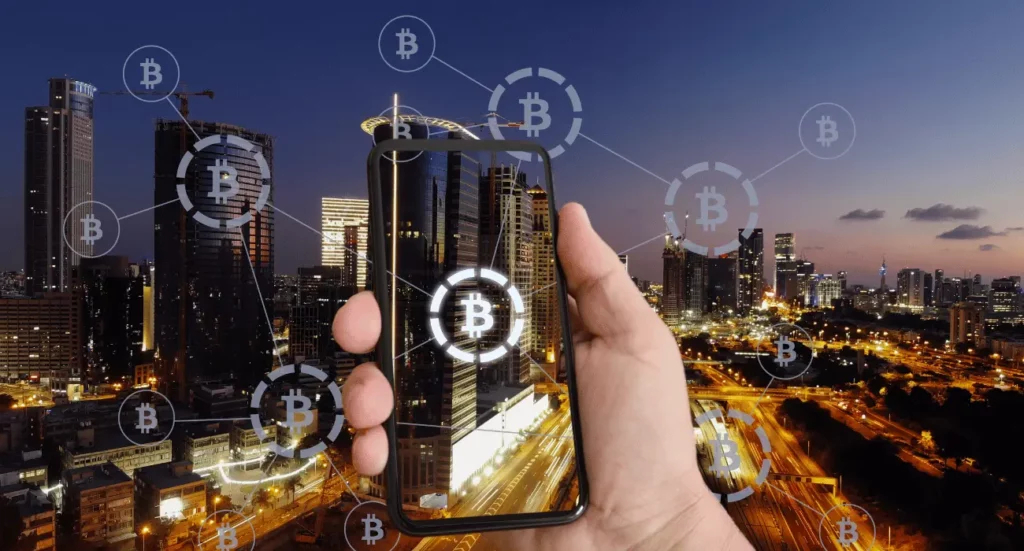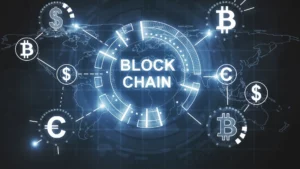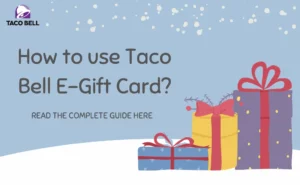We’re used to high speeds. This applies equally to transportation and online shopping. Of course, users expect the same from the cryptocurrency space. Transaction processing speed has become a key indicator in determining the potential of a project.
Transactions using cryptocurrencies are often executed faster compared to traditional transfers through the financial system. In fact, converting XMR to BTC on a cryptocurrency exchange is practically instantaneous. But that’s not enough, and the fight for speed continues.

What is TPS?
TPS stands for transactions per second, which is the number of transactions a blockchain can process in one second. This indicator is called throughput because it characterizes the speed and scalability of the network.
Another important speed parameter is transaction confirmation time. The scalability of a blockchain depends on these two parameters, which determine its ability to process a growing number of transactions.
Finding effective solutions to increase scalability is extremely important for the crypto industry. Insufficient scalability is what slows down the adoption of blockchain technology.
In pursuit of speed
In theory, an ideal blockchain should be secure, fast, and decentralized all at the same time. This problem is known as the blockchain trilemma. In practice, improving one characteristic almost inevitably weakens one of the remaining two.
Nevertheless, several blockchain projects have managed to successfully address the blockchain trilemma and achieve decent results.
Also Check:- Gifting Cryptocurrencies: A Good Deed Or Bad
What are the fastest cryptocurrencies?
Of the three key characteristics of blockchains, scalability remains the most desirable as it determines the mass adoption of the technology. Increasing the scalability of a blockchain was one of the main arguments for Ethereum’s transition to the Proof-of-Stake consensus algorithm, which took place in the early fall of 2022. The expected TPS of 100,000 has not yet been achieved, but work in this direction continues. So, which blockchains are the fastest?
Solana
Solana (SOL) is a blockchain network that appeared in 2017 and is one of the fastest networks with transaction speeds of 3000 TPS (theoretically up to 710,000). It achieves such high speed thanks to a hybrid consensus mechanism of Proof of History (PoH) and Proof of Stake (PoS), which ensures its high scalability.
Thanks to its high throughput, Solana has low fees and is less prone to network congestion. This makes it attractive for launching DApps, games, and, recently, NFTs (non-fungible tokens).
Ripple (XRP)
Ripple (XRP) is an alternative to cross-border payment systems such as SWIFT, based on blockchain technology. It boasts transaction speeds of 1500 TPS, which is expected to be increased to 50,000 TPS.
Ripple was created to compete with the speed of traditional cross-border payment systems and charges only $0.0003 per transaction (as opposed to $15-20 per SWIFT transaction). Transaction completion takes 3 to 5 seconds, which enhances the overall efficiency of the network. XRP uses a network of trusted nodes that requires 80% consensus before processing and confirming transactions. However, this unique method raises concerns about decentralization.
Nevertheless, many banks worldwide have already adopted Ripple due to its high speed and low fees to facilitate international and domestic money transfers.
Also Check:- What to look for in cryptocurrency exchanges?
Fantom (FTM)
Fantom is one of the fastest networks, boasting a fast TPS of 25,000 and a block completion time of around 1 second. The blockchain utilizes a Directed Acyclic Graph (DAG), a distributed ledger technology that consists of a computer network and executes transactions in parallel. To verify transactions, each computer in the DAG exchanges information about its transactions with random neighboring computers, which repeat the same action, instantly propagating the transaction throughout the network. This system ensures high network throughput and practically unlimited scalability for the Fantom network.
Fantom also uses the Ethereum Virtual Machine (EVM) and is compatible with Ethereum. This allows Ethereum developers to easily deploy DApps on the Fantom network.
Algorand (ALGO)
Algorand is a secure and scalable network designed to support various applications. Launched in 2019, Algorand is known for its high transaction processing speed, averaging around 1300 TPS with a potential capacity of up to 3000 TPS. The block completion time is also impressive, with transaction verification taking approximately 5 seconds.
Algorand uses the PPoS consensus mechanism, randomly selecting and rewarding verifying miners to ensure a fair environment. This modified mechanism allows Algorand to achieve decentralization while maintaining high transaction processing speed.
Thanks to its high throughput and scalability, Algorand has a potentially wide range of use cases on a global scale. Many DApp and DeFi developers turn to the network to avoid high fees and congestion on Ethereum.
Avalanche (AVAX)
Avalanche Network – a smart contract-enabled blockchain, is one of the fastest blockchains with speeds of up to 4500 TPS and block completion time of 1-2 seconds.
Avalanche’s unique approach to solving the blockchain trilemma involves using a PoS mechanism and a unique system of three blockchains within its ecosystem, each focused on a specific goal:
- Exchange Chain for asset trading.
- Contract Chain, which enables developers to create decentralized applications.
- Platform Chain for tracking validators who manage Avalanche subnets.
By utilizing high throughput and low fees, Avalanche aims to create a simple and unified global market for frictionless asset trading. In the future, this multi-network project could become one of the major blockchains for financial services in the web 3.0 economy.
Author Profile
Latest entries
 Apple PayJanuary 27, 2024Does Fred Meyer take Apple Pay (Complete Guide)?
Apple PayJanuary 27, 2024Does Fred Meyer take Apple Pay (Complete Guide)? ApplicationAugust 26, 2023Mera Bill Mera Adhikar Scheme Complete Details (2024)
ApplicationAugust 26, 2023Mera Bill Mera Adhikar Scheme Complete Details (2024) GamesAugust 25, 20235 Incredible Social Card Games Everyone Should Play
GamesAugust 25, 20235 Incredible Social Card Games Everyone Should Play AppsAugust 24, 2023Guard Credit Loan App User Reviews [Real or Fake?]
AppsAugust 24, 2023Guard Credit Loan App User Reviews [Real or Fake?]





